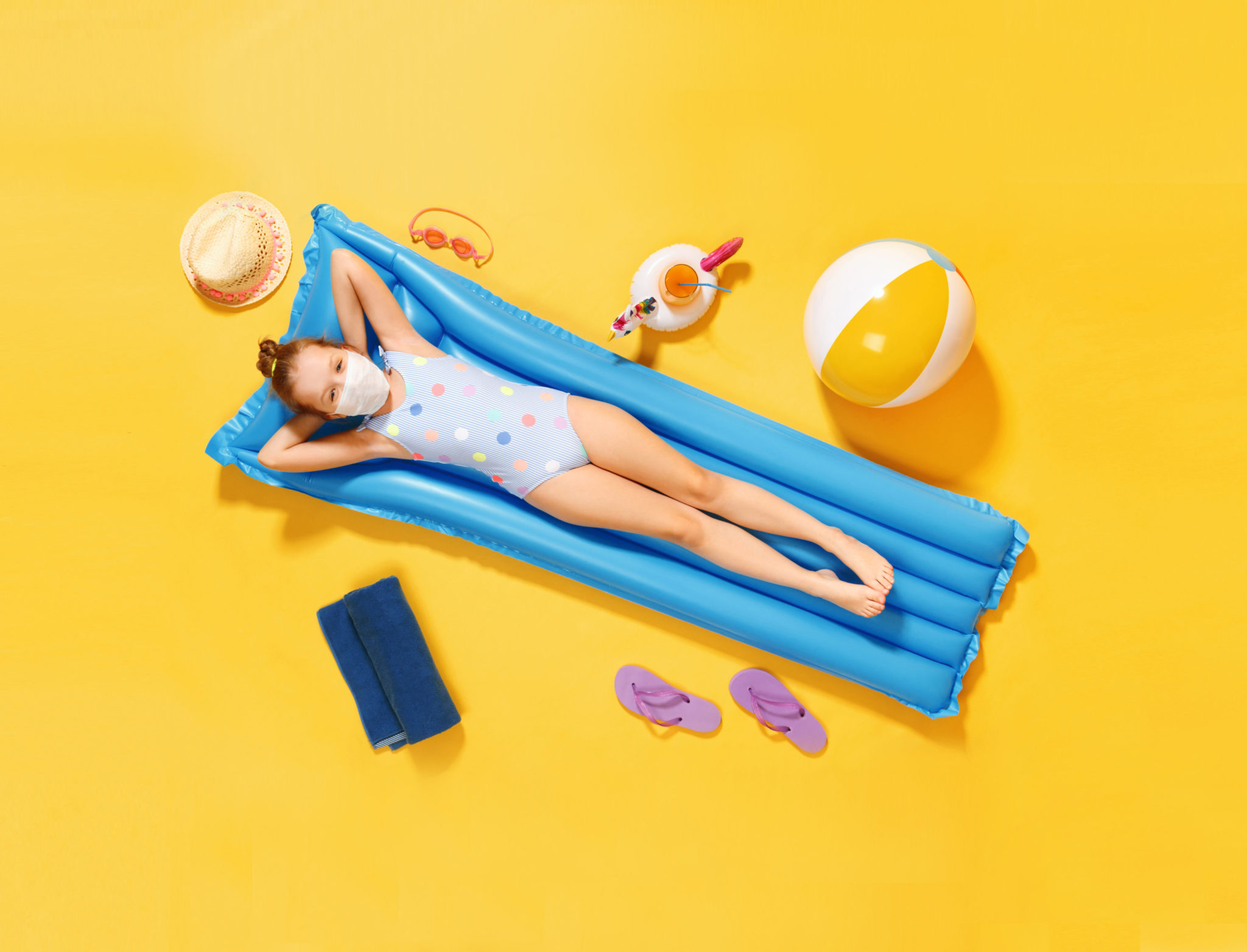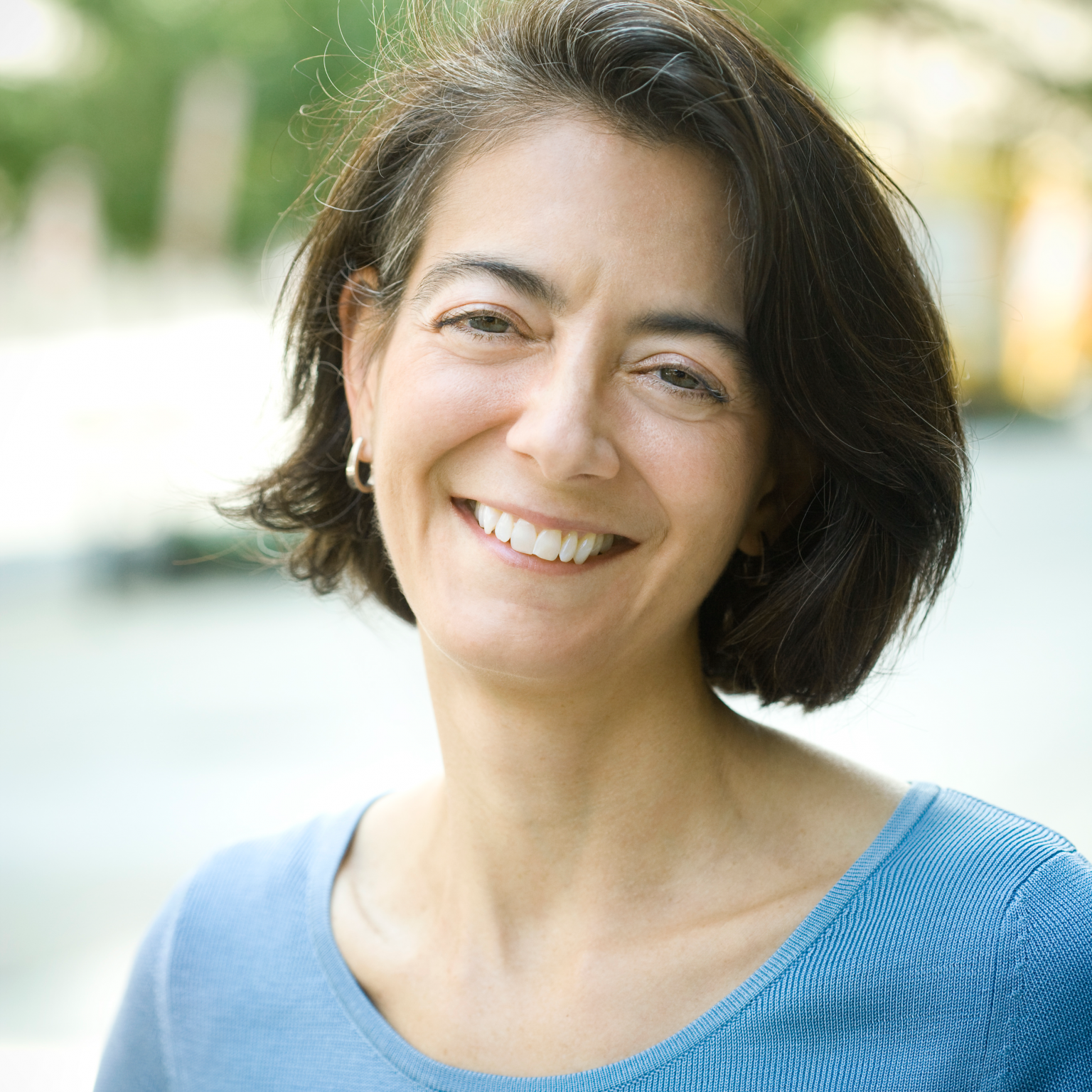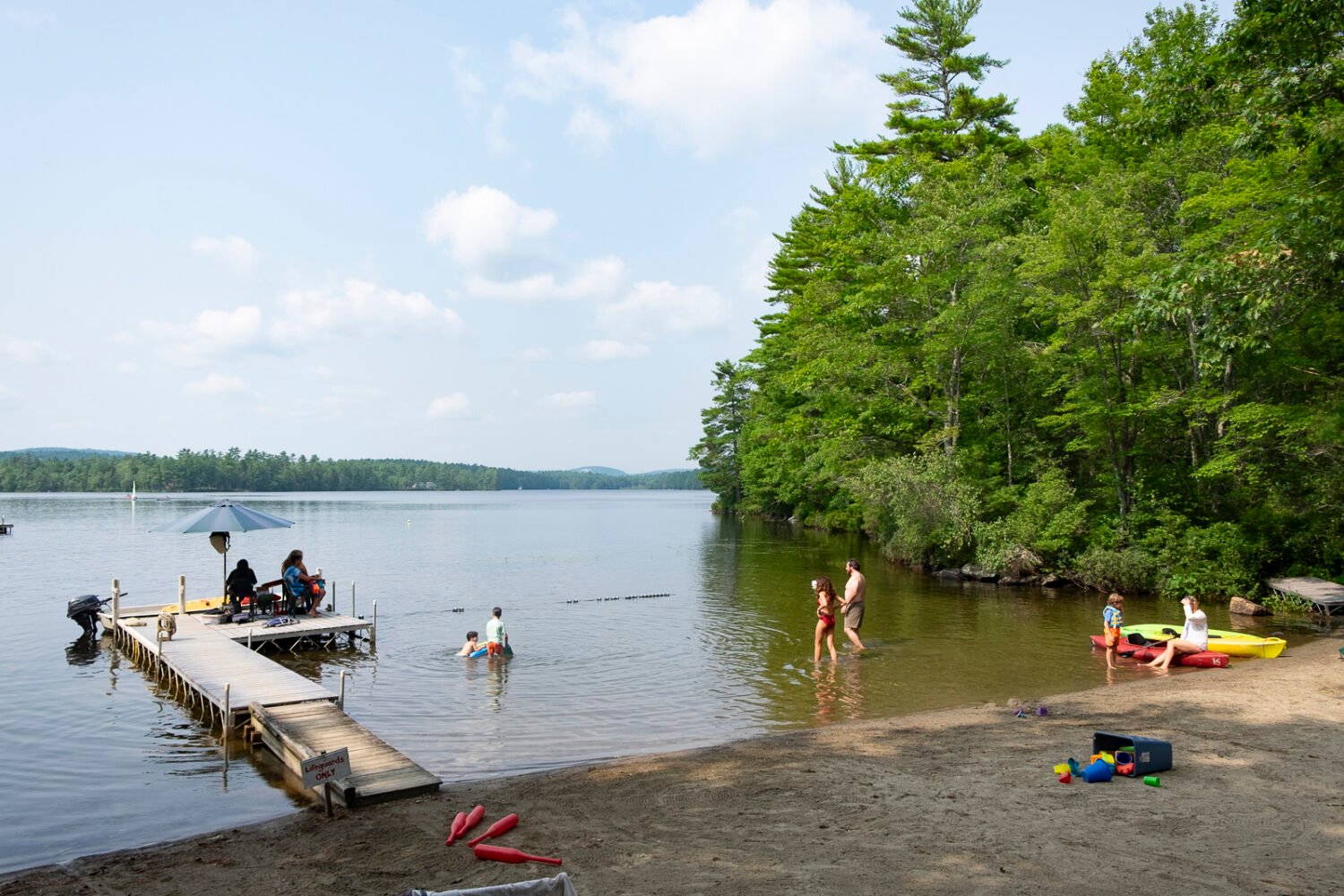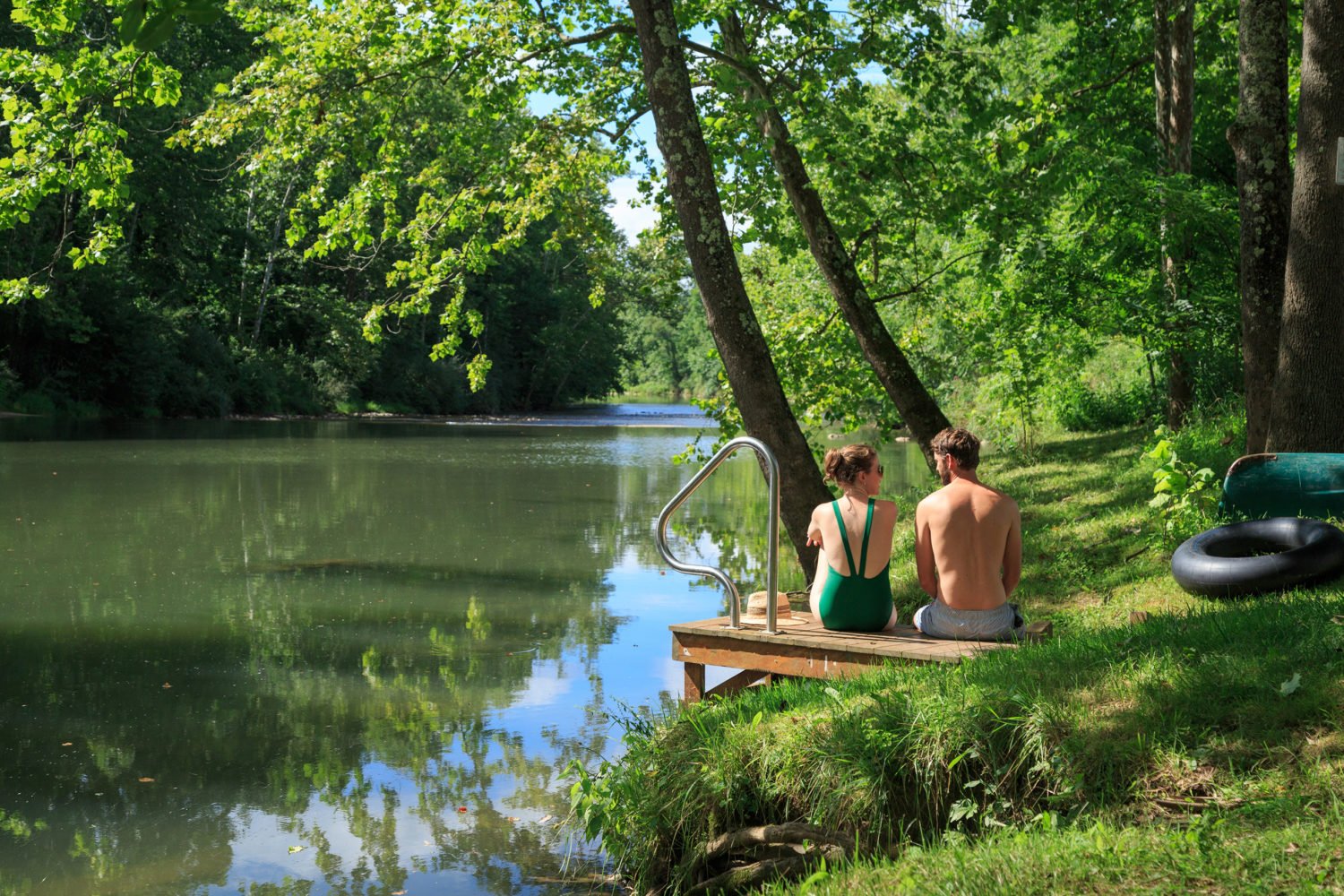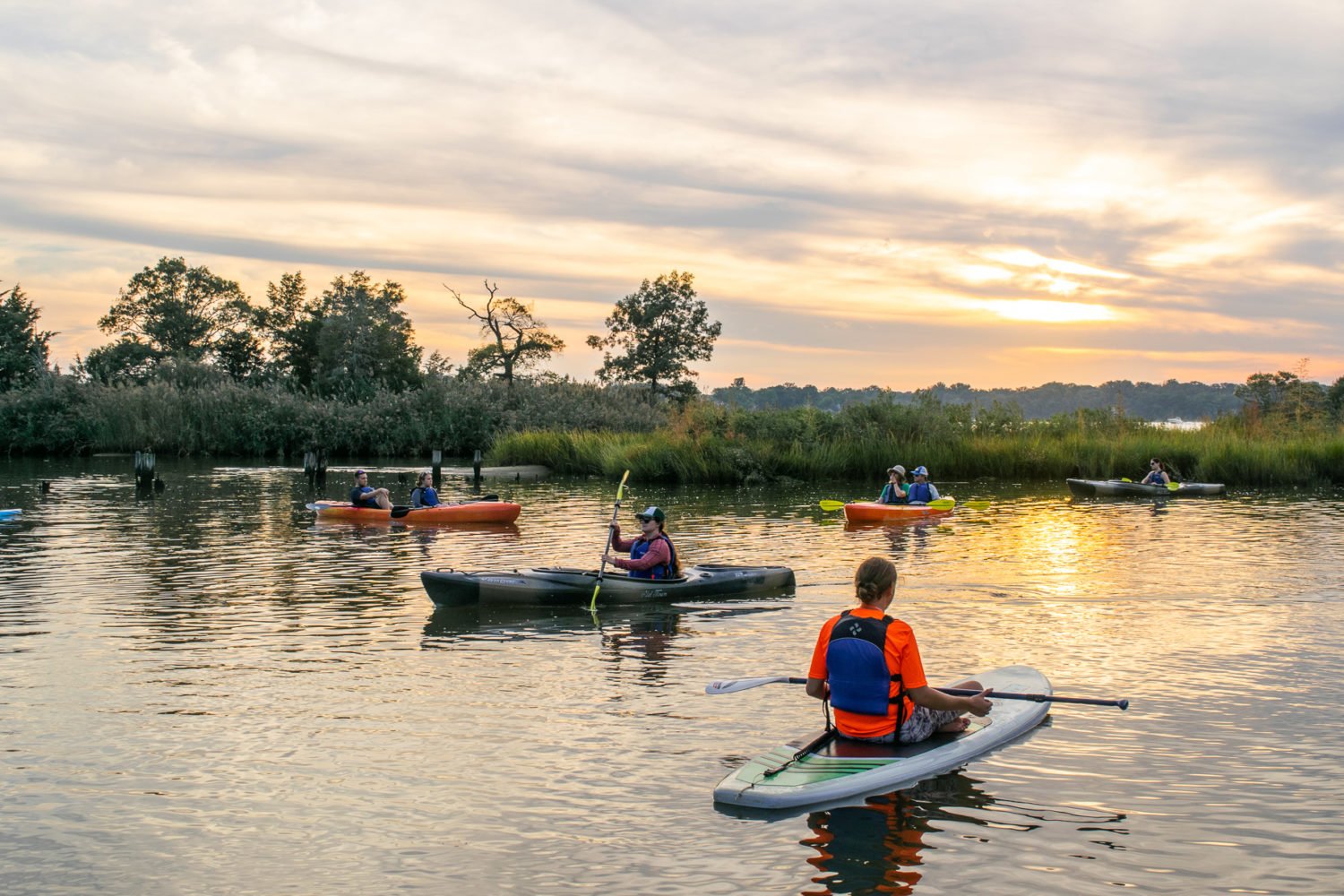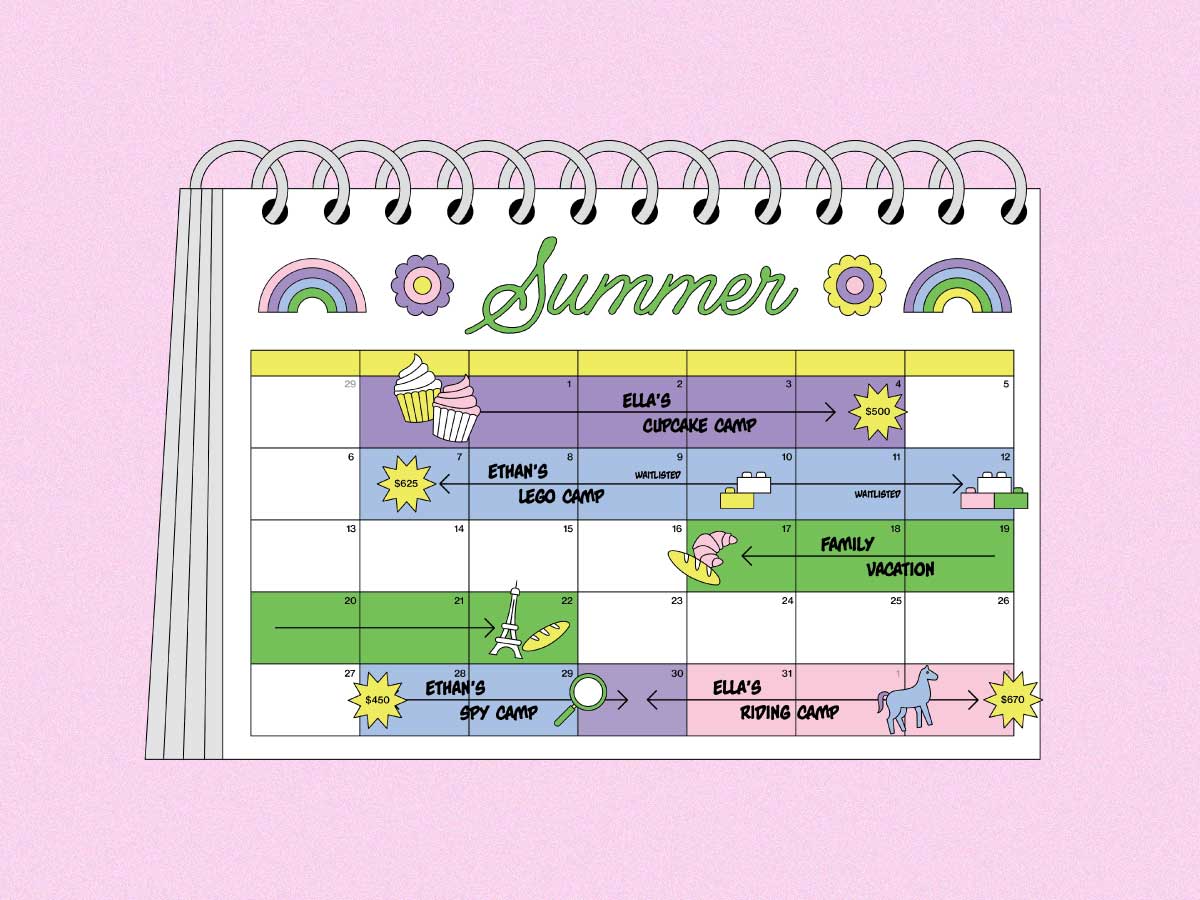Parents who have had their children isolated at home for months, staring at computer screens, are about to get a shot in the arm. No, not that shot in the arm.
Summer camps are planning in-person sessions this year, full of swimming, arts and crafts, and other childhood fun. And many have already opened up registration.
Last summer, most in-person summer programs were canceled—according to the American Camp Association, only 18 percent of the country’s overnight camps welcomed kids. Too much was unknown at that point about Covid-19, and many states didn’t permit camps to open.
Fast-forward to now. As we’ve learned more about how the virus spreads, camps say they’ve had time to prepare and feel confident they can keep kids and counselors safe. Some of that knowledge comes from camps that were active last summer.
The Centers for Disease Control and Prevention reported on a study of four camps in Maine that in 2020 served more than 1,000 attendees from around the country. It found that consistent adherence to multiple safety interventions we’ve all since become used to—physical distancing, face coverings, enhanced cleaning and hygiene, staying outside as much as possible, testing and symptom-monitoring, and pre-arrival quarantine—kept the virus in check. Meanwhile, a camp in Georgia that wasn’t as diligent shut down within days when almost half of the nearly 600 attendees contracted the coronavirus.
Headfirst Summer Camps, which runs programs throughout the Washington area, managed to offer some of its camps last summer by staying outdoors as much as possible.
“Our phones have been ringing nonstop, with parents asking, ‘When are you opening? I know you ran camp in 2020, and I want to get a spot in 2021,’ ” says Jennifer Purtell, vice president of strategic growth.
Here are six things to know about how summer camps will operate this year—and what you may need to sacrifice if you want to send your child to one.
1. Most camps still plan to practice social distancing, masking, and other virus-control measures.
If 2020 taught us anything, it’s that the only certain thing in a pandemic is uncertainty. While many are hopeful that by summer legions of Americans will be vaccinated and the virus will die down, that may not happen. Also, children will be among the last to be vaccinated. So camp directors are being advised to plan for another Covid summer.
That means stocking cleaning products, tweaking logistics such as pick-up and drop-off, and eliminating shared supplies as well as some activities. (“A game of tag? We’re not doing that,” says Tom Rosenberg, president and CEO of the American Camp Association.)
Another change: Most camp activities will be outdoors, even if it’s 90 degrees.
Headfirst will run most of its camps—sports, art, STEM—outside. In 2020, “we put up big tents,” Purtell says. “We found new ways of keeping kids cool.”
At Woodberry Forest, an all-boys boarding high school in Virginia, changes the school made to bring students back in the fall will extend to its overnight summer camps. “We have a 1,200-acre campus, so most of the camps are outside anyway,” says Ansel Sanders, director of summer programs. “We’re fortunate we have an outdoor pool. We’ve also had to be creative. We have a bunch of tennis courts we’ve converted into outdoor basketball courts.”
2. Campers will stay in small “cohorts”—much like school learning pods—and won’t interact with others.
“Cohorting is an important concept—grouping campers and staff in the smallest appropriate cohort,” says Rosenberg. The kids in a cohort will eat and play together and, in the case of overnight camp, live together, while physically distancing from other groups. If one camper or counselor has symptoms of or tests positive for Covid, the cohort can quarantine without shutting down the whole camp.
Headfirst plans to have cohorts of 12 or fewer children and a dedicated counselor. “Maybe we used to get all of the kids together in a big group activity,” Purtell says. “Now there is no contact between groups.”
Many camps already organized kids into small groups or teams pre-pandemic, so programming won’t change much. Yet it does mean that kids are unlikely to all board a bus to go on a field trip, and that kids will have to adapt.
“Instead of having everyone who wanted to go to jewelry-making or metalworking go, now it’s a group decision,” Rosenberg says. “It’s raising kids to work in teams.”
Rosenberg adds that camps may have to modify swim programs, too: “Pre-Covid, you grouped kids by skill level, but now you’ll have to group them by cohort. So it will be less about instruction and more about just physical activity.”
The good news: Camp pools will be open this summer. Last year, when it was unclear if the virus could be transmitted in water, Headfirst scrapped swimming. But, Purtell says, “pools ended up being a safe environment, so we’re bringing [swimming] back for 2021.”
3. Camps may have fewer slots than in the past.
Because of the need to physically distance, some camps are limiting enrollment—making it even more important to sign up early. Other camps have had to cancel some programming, for safety reasons.
Lower attendance has meant less revenue for camps—and many are struggling. Urban Adventure Squad, which arranges outings in DC not just in summer but also on school holidays throughout the year, used to have as many as 40 children on any given day but now typically has five to 12. “It’s really tough. It’s payroll-to-payroll,” says founder and executive director Elana Mintz. To help, they’ve launched a “Save the Squad” membership campaign.
Mintz feels strongly that kids need camp, and she has modified the programming to fit the times: All sessions are currently outdoors, even in winter (one program teaches kids to build a fire, then they roast s’mores), and campers must wear masks the entire time. For now, what used to be daylong programs last only two to three hours because, Mintz says, children can’t go more than three hours without needing a bathroom or a snack.
4. Before your child heads to camp, your whole family may have to make hard choices—and quarantine.
One factor that could make monitoring for Covid at camps easier, says Rosenberg: “The experts we’re in touch with are telling us that testing will be more available and more affordable this summer.”
Overnight camps will likely require children to be tested within a certain number of days both before and after arrival. Parents may also be asked to quarantine prior to camp .
“Don’t go to that Fourth of July party if you’re sending your kid to camp,” Rosenberg says. “Take it seriously.”
That’s not just for overnight.
“There was an assumption by many people [last summer] that day camps were safer than overnight camp, but I don’t think you can say that,” Rosenberg cautions. “Children and staff are in a bubble for the duration for overnight camp. Children and staff go home each night for day camp. If you’re going to day camp, really think about what your family does in the off-time.”
5. Know that the best-laid plans may fall apart.
Summer-camp directors we spoke with are working under the hope that the virus’s trajectory will get better, not worse, and that state and local governments will allow camps to proceed. All bets could be off if Covid is still raging.
“Normally, there’s more certainty this time of year about what June is going to look like,” says Laura Boyer, director of summer programs at the Edmund Burke School.
Because of the uncertainty, some camps have opened registration but aren’t yet asking for payment from parents—who themselves may be unsure whether to send their kids. Other camps, such as those at the Smithsonian, might delay registration until spring—typically, it would happen in late winter.
Some camps are working on different sets of plans should in-person be impossible.
At Alliance Française, which conducts weeklong summer day camps in cooking, judo, science, and other disciplines—in French, mais oui—executive director Sarah Diligenti says her staff is readying multiple plans.
In one scenario, they’ll host in-person sessions in their Kalorama townhouse for up to ten children at a time. But they also are preparing to turn the all-day, in-person sessions into two-hour virtual camps, because they don’t have much outdoor space if indoors is still deemed too risky.
“We are preparing for every option, but I’m pretty sure we’re leaning toward digital-only,” says Diligenti, who realizes that most parents, after an online school year, may opt for in-person camps.
Elana Mintz of Urban Adventure Squad agrees that kids are so over virtual everything: “I was talking to one girl who said, ‘I don’t want to be on mute anymore.’ ”
6. Some camps, knowing that kids have been affected emotionally and physically by quarantine, are planning for that, too.
Camp counselors are typically trained in medical first aid, but this year, Rosenberg says, they also may need to be prepared to provide emotional first aid.
“One of the great things about camp, if it’s run well, is that kids feel emotionally safe there. When they feel safe, they start to share. And some of the trauma they may have felt during the pandemic will very likely bubble up,” Rosenberg says. “I can tell you that last summer, talking to camp directors who were able to operate, some of these directors were saying to me, ‘When the kids first arrived at camp, they were out of shape, they were anxious, they were down. So we started devoting more time in the morning to stretching and yoga. We also noticed that the kids just wanted to talk. They hadn’t been able to sit face to face, mask to mask, to just see a peer and have a conversation. So we started to devote more time to conversation.’ ”
With their emphasis on movement and activity, plus spending time in nature away from screens, camps could be a salve for children whose mental, physical, and social health has been affected by the pandemic.
“I think camp,” says Rosenberg, “will help our kids reset this summer.”

